Hair loss is a serious problem affecting more people than you'd think, so many health professionals spend a lot of time and money trying to figure out solutions to solve the problem.
While, unfortunately, there is no cut-and-dry "cure" for hair loss, scalp care products like the ones Divi offers have been designed to cultivate a healthier scalp and help with many of the symptoms associated with hair loss.
If you're interested in discovering more about our products and the ingredients we use to create them, then read on, as we'll specifically be discussing acetyl tetrapeptide-3 and how it can promote hair growth and improve scalp health.
Acetyl Tetrapeptide-3 And Its Effects On The Body
Peptides generally occur naturally in the body, and they are technically smaller versions of proteins, as they are small chains of amino acids. Acetyl tetrapeptide-3 is a biomimetic peptide, as it was derived from a signal peptide that stimulates tissue remodeling by inducing laminin synthesis, collagen III and collagen IV.
Scientists created the peptide to improve some of the effects of hair loss, as the signal peptide that acetyl tetrapeptide-3 mimics increases the size of hair follicles, which helps with better hair anchoring.
It does this by stimulating dermal papilla extracellular matrix (ECM) proteins and provides a repairing effect at the dermal-epidermal junction level, improving its ability to anchor hair follicles.
Does Acetyl Tetrapeptide-3 Block DHT?
DHT is believed to cause many hair loss cases. So what exactly is it, and how can acetyl tetrapeptide-3 help block DHT?
What is DHT?
Dihydrotestosterone, better known to the world as DHT, is an androgen, which means it plays a role in the development of male characteristics, such as body hair, a deep voice and changes to how fat is stored in the body.
Unfortunately, DHT can also cause both men and women to lose their hair earlier and faster than normal.
Generally, your hair growth goes through a cycle lasting anywhere from 2-6 years. If you shave or cut your hair at this time, the same strand will grow back out of the same root inside the follicle.
Once this cycle ends, the hair follicle will go into a resting phase before falling out entirely after a few months. The hair follicles will then produce new hairs, and this cycle repeats.
However, high levels of androgens, like DHT, can cause the hair follicle size to shrink and also shorten the process of the above-mentioned hair growth cycle. This will cause a decrease in hair density, cause the hair to look and feel brittle, and make it take longer for your follicles to develop new hairs.
When DHT affects men, it is generally called male-pattern baldness or male-pattern hair loss, and when it affects women, it is known as female-pattern hair loss. The blanket term for the condition is androgenetic alopecia (AGA).

How Does Acetyl Tetrapeptide-3 Block DHT?
Acetyl tetrapeptide-3 helps inhibit 5-α-reductase, which modulates the conversion of testosterone to DHT. This helps prevent DHT from affecting the hair growth cycle in people with mild to moderate AGA.
The Benefits of Acetyl Tetrapeptide-3 for Your Hair and Scalp
Now that you know how DHT can cause hair loss, you might wonder how acetyl tetrapeptide-3 works as a hair-growing agent and why we have included it in Divi’s scalp care products. Here are some of the benefits of acetyl tetrapeptide-3.
Effects on Hair Anchoring
Androgenetic alopecia, as we now know, is brought on by an excess of DHT, which can stunt hair growth and cause hair follicles to shrink. However, it is also caused by a loss of extracellular matrix (ECM) proteins in the follicular bed.
Acetyl tetrapeptide-3 can renew the ECM proteins, stimulate anchoring proteins, and stimulate collagen III, collagen IV, and laminin.
To test this, researchers conducted a study on the effects of acetyl tetrapeptide-3 on the scalp. They included 30 volunteers with androgenetic alopecia and gave 15 of them a herbal extract combination containing acetyl tetrapeptide-3, while the other 15 participants received a placebo.
The aim was to quantify the total collagen synthesis caused by acetyl tetrapeptide-3 on fibroblasts. This is measured by determining the amount of hydroxyproline produced, as it can help determine the stimulating effects of a product on fibroblast collagen production.
The study found that acetyl tetrapeptide-3 significantly stimulates the synthesis of hydroxyproline and increases the synthesis of collagens. This means acetyl tetrapeptide-3 helps increase the size of hair follicles that have shrunk and improves hair anchoring, which will reduce the effects of hair loss.
Effects on 5-α-reductase Activity
When acetyl tetrapeptide-3 is combined with other ingredients offering synergistic effects, it can inhibit 5-α-reductase, which is responsible for converting testosterone into DHT.
The study mentioned above also tested acetyl tetrapeptide-3's ability to inhibit 5-α-reductase activity. It found that Acetyl tetrapeptide-3 was able to inhibit 5-α-reductase activity by up to 64%. DHT is the leading cause of androgenetic alopecia, so reducing the amount produced in the body may improve hair growth and reduce hair loss.
Acetyl Tetrapeptide-3 Versus Minoxidil
In 2020, a different study comparing the effects of a herbal extract combination containing acetyl tetrapeptide-3 against a 3% minoxidil solution was conducted to determine the impact they would have on people with androgenetic alopecia.
The study featured 32 male and female subjects with mild to moderate AGA. They helped determine which product would be more effective. Terminal hair counts were used to measure the effectiveness of each product after 24 weeks of treatment.
The herbal extract combination demonstrated similar results compared to the 3% minoxidil solution. On average, the subjects who used the herbal extract combination experienced an 8.3% increase in their terminal hair count. By comparison, the subjects who used the minoxidil solution experienced an average 8.7% increase in their terminal hair count.
While none of the people who used the herbal extract combination experienced any adverse reactions, the same could not be said for the minoxidil solution. One person in the minoxidil group developed scalp eczema after using it for 24 weeks.
Therefore, acetyl tetrapeptide-3 was just as effective as harsher prescription hair and scalp care products in treating androgenetic alopecia but did not cause adverse reactions. This is one of the main reasons we include acetyl tetrapeptide-3 and many other clean ingredients in Divi’s highly rated Scalp Serum.
How to Apply Divi Products to Your Scalp
Since we’ve explained how acetyl tetrapeptide-3 can improve scalp health and promote hair growth, you may understand why we include it in Divi’s Scalp Serum.
While we have carefully chosen all of the ingredients we include in our products, it is essential to note there is no one-size-fits-all solution for hair loss, so you should consult a doctor to find a treatment that will work best for you.
Divi's Scalp Serum
If using Divi's Scalp Serum, you’ll achieve the best results by using the serum once daily, either in the morning or evening, for at least 90 days.
When applying the serum to your scalp, fill the included dropper to three-quarters full and then distribute the liquid over the scalp via massage.
You can apply our Scalp Serum to dry or towel-dried hair, depending on your preference. After using Divi’s Scalp Serum, you may feel a slight tingling sensation—that’s just the peppermint oil working its magic and soothing the scalp.
What Other Ingredients Are in Divi's Scalp Serum?
Besides acetyl tetrapeptide-3, we have included many other clean ingredients shown to improve the effects associated with hair loss. These include:
- Menthol
- Tea tree oil
- Copper tripeptide-1
- Rosemary leaf extract
- Caffeine
- Coconut oil
- Black pepper seed extract
- Biotin
- Jojoba seed oil
- Ascorbic acid
The Side Effects of Acetyl Tetrapeptide-3 in Divi's Products
There are no known side effects attached to the topical use of acetyl tetrapeptide-3, and the amount we use in Divi's Scalp Serum makes this ingredient even less likely to cause harm. However, Divi’s Scalp Serum and acetyl tetrapeptide-3 should not be ingested. It should only be applied topically.
Final Thoughts
If you've been feeling a little thin on top and want to do something about it, consider using Divi's Scalp Serum with acetyl tetrapeptide-3.
Our scalp care product consists of many clean ingredients shown to improve some of the symptoms associated with hair loss to get your hair and scalp health back on track. Buy your first bottle of Divi’s Scalp Serum today!






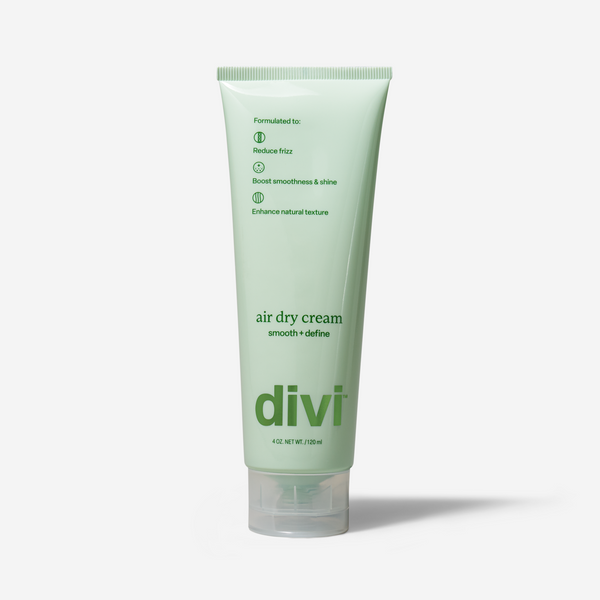
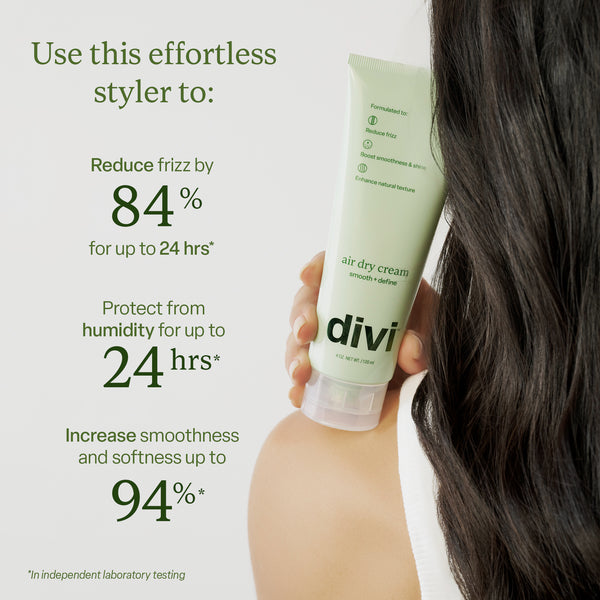

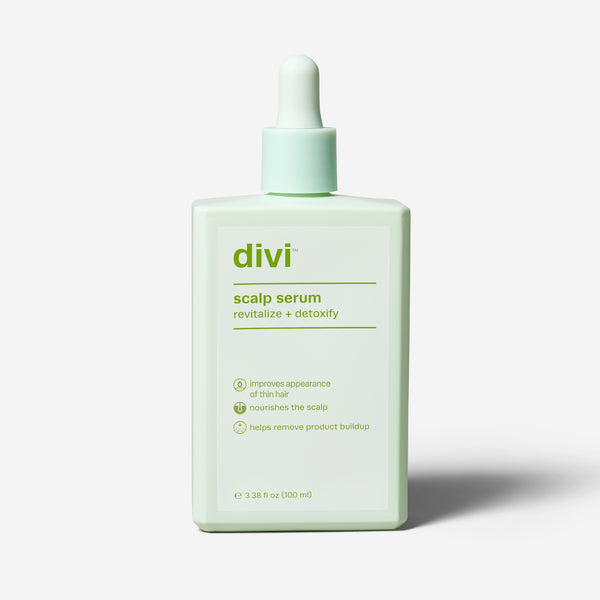

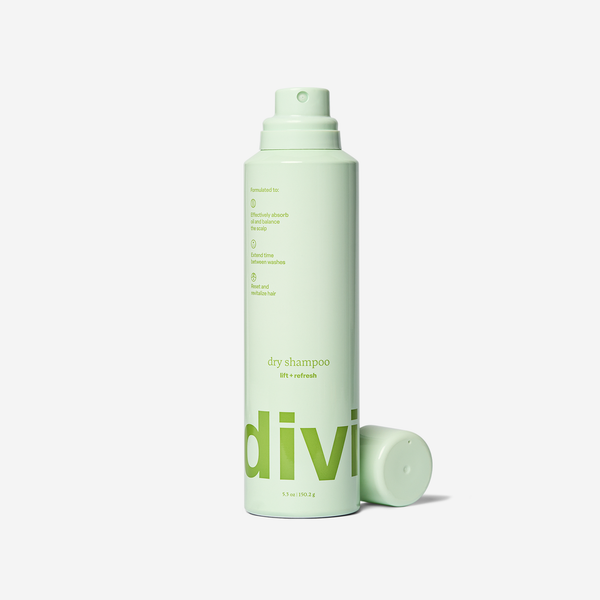

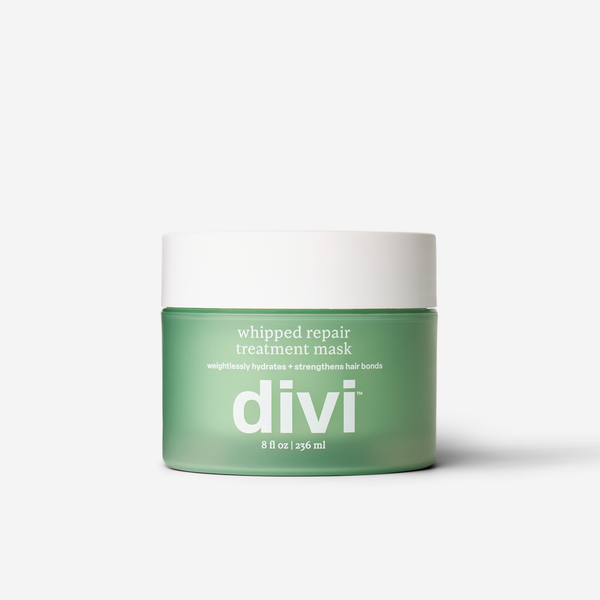
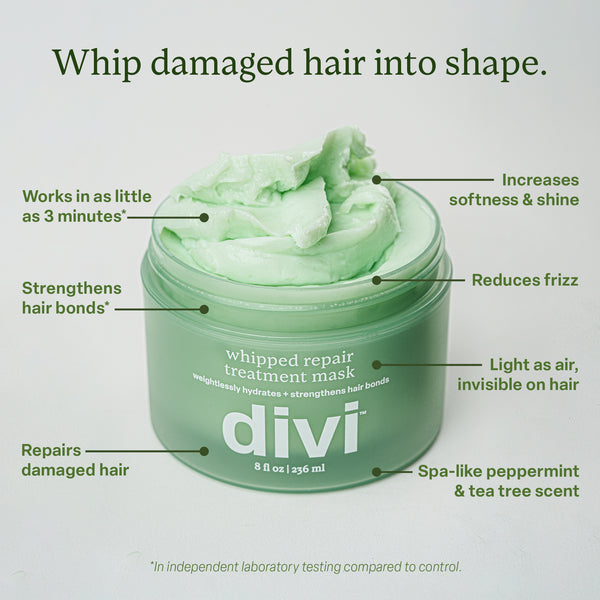
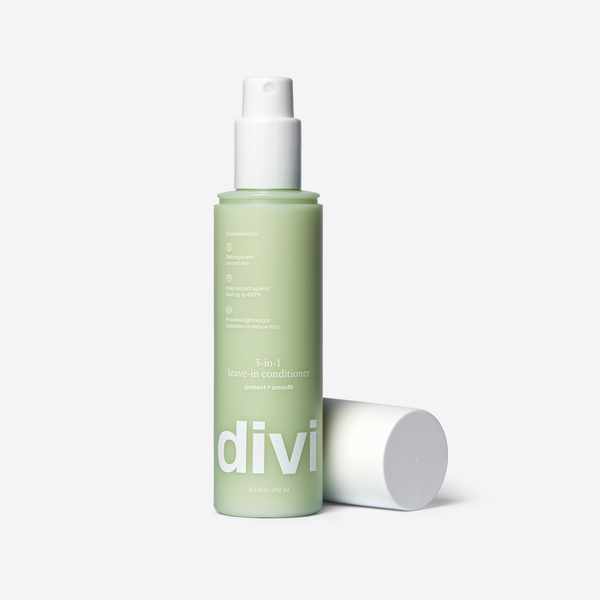

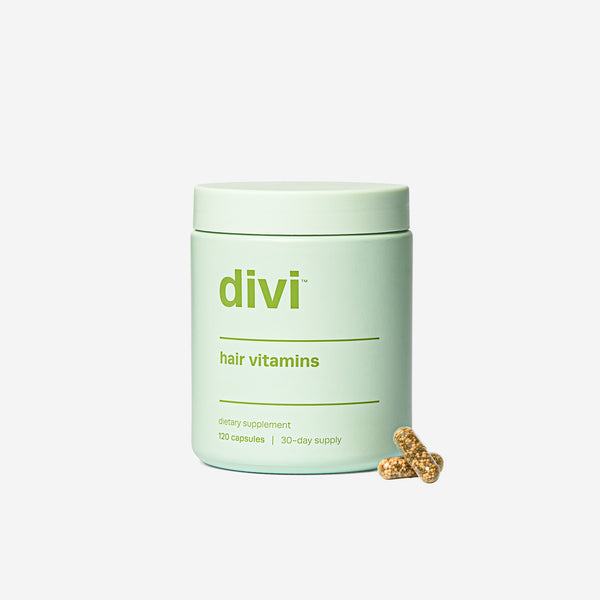
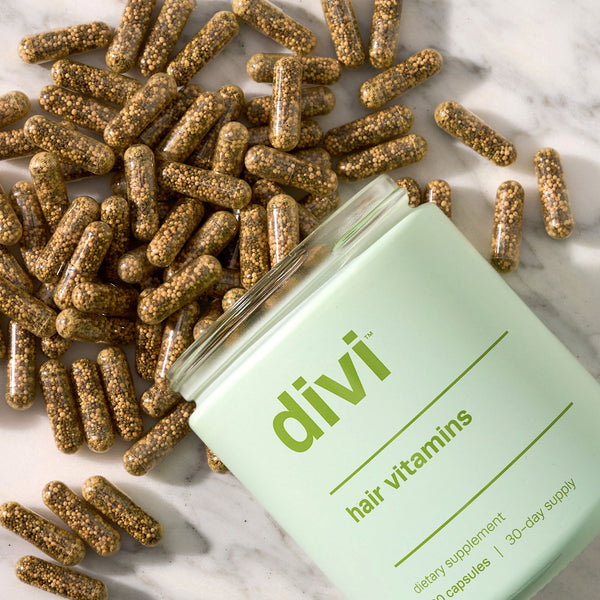
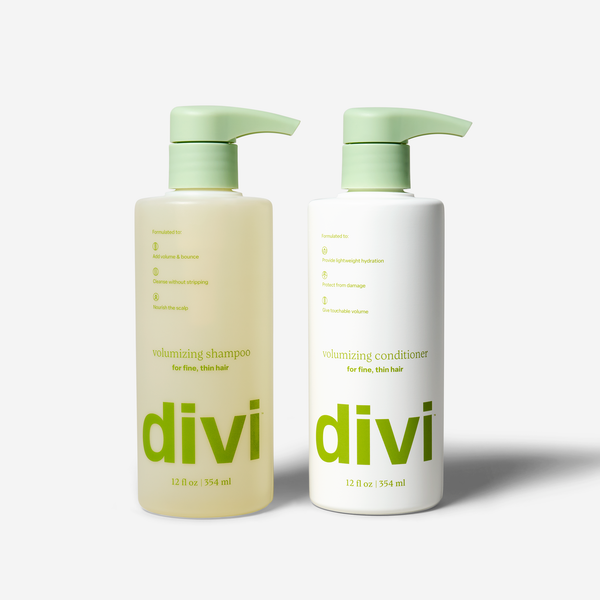





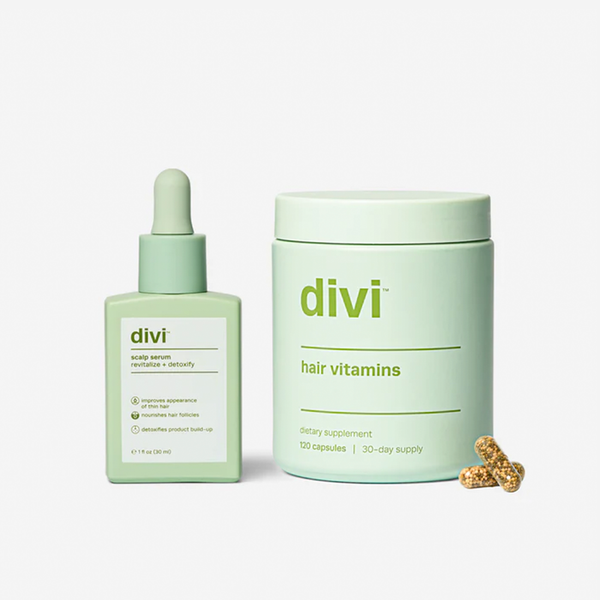
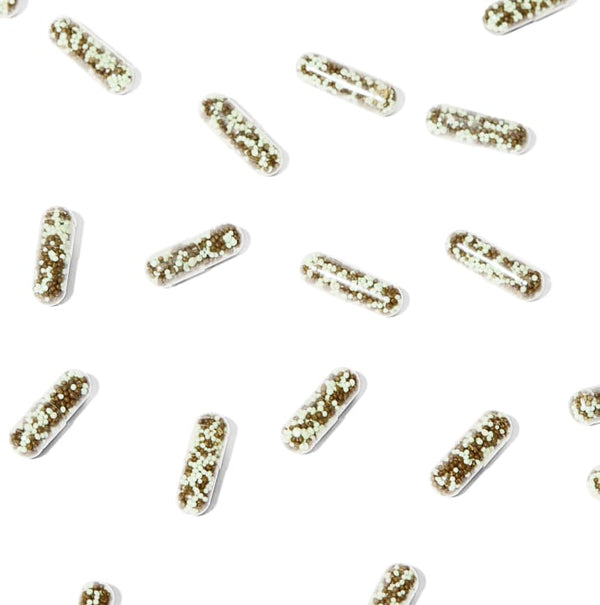
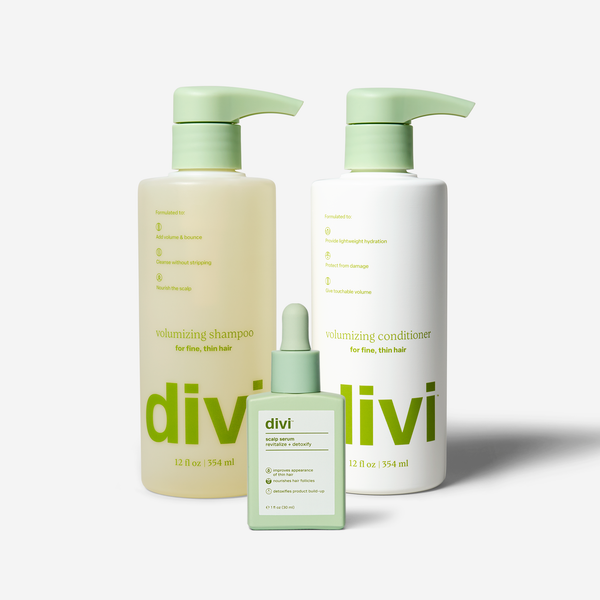



















 30ml Scalp Serum
30ml Scalp Serum
 100ml Scalp Serum
100ml Scalp Serum
 Volumizing Shampoo
Volumizing Shampoo
 Hydrating Shampoo
Hydrating Shampoo
 Travel-Sized Volumizing Shampoo
Travel-Sized Volumizing Shampoo
 Travel-Sized Hydrating Shampoo
Travel-Sized Hydrating Shampoo
 Volumizing Conditioner
Volumizing Conditioner
 Hydrating Conditioner
Hydrating Conditioner
 Travel-Sized Volumizing Conditioner
Travel-Sized Volumizing Conditioner
 Travel-Sized Hydrating Conditioner
Travel-Sized Hydrating Conditioner
 3-in-1 Leave-In Conditioner
3-in-1 Leave-In Conditioner
 Best Sellers Bundle
Best Sellers Bundle
 Volumizing Starter Bundle
Volumizing Starter Bundle
 Hydrating Starter Bundle
Hydrating Starter Bundle
 The Healthy Hair Bundle
The Healthy Hair Bundle
 Hair Vitamins Trio
Hair Vitamins Trio
 Dry Shampoo
Dry Shampoo
 Hair Vitamins
Hair Vitamins
 Volumizing Shampoo & Conditioner
Volumizing Shampoo & Conditioner
 Travel-Sized Volume Duo
Travel-Sized Volume Duo
 Hydrating Shampoo & Conditioner
Hydrating Shampoo & Conditioner
 Travel-Sized Hydrating Duo
Travel-Sized Hydrating Duo
 Travel-Sized Dry Shampoo
Travel-Sized Dry Shampoo
 Travel-Sized Dry Shampoo Trio
Travel-Sized Dry Shampoo Trio
